Deeply divided nation.
or are we?
We have it completely wrong.
Pick up the newspaper, watch the news on television or scroll through Twitter or Facebook and you might reasonably conclude that as a country, we are in quicksand – standing still, incapable of finding common, stable ground and, worse, sinking fast. As the mid-term elections demonstrated, it appears that we are hopelessly divided as a nation and seemingly nothing can be done about it.
But what if you’re wrong? What if we’re all wrong?
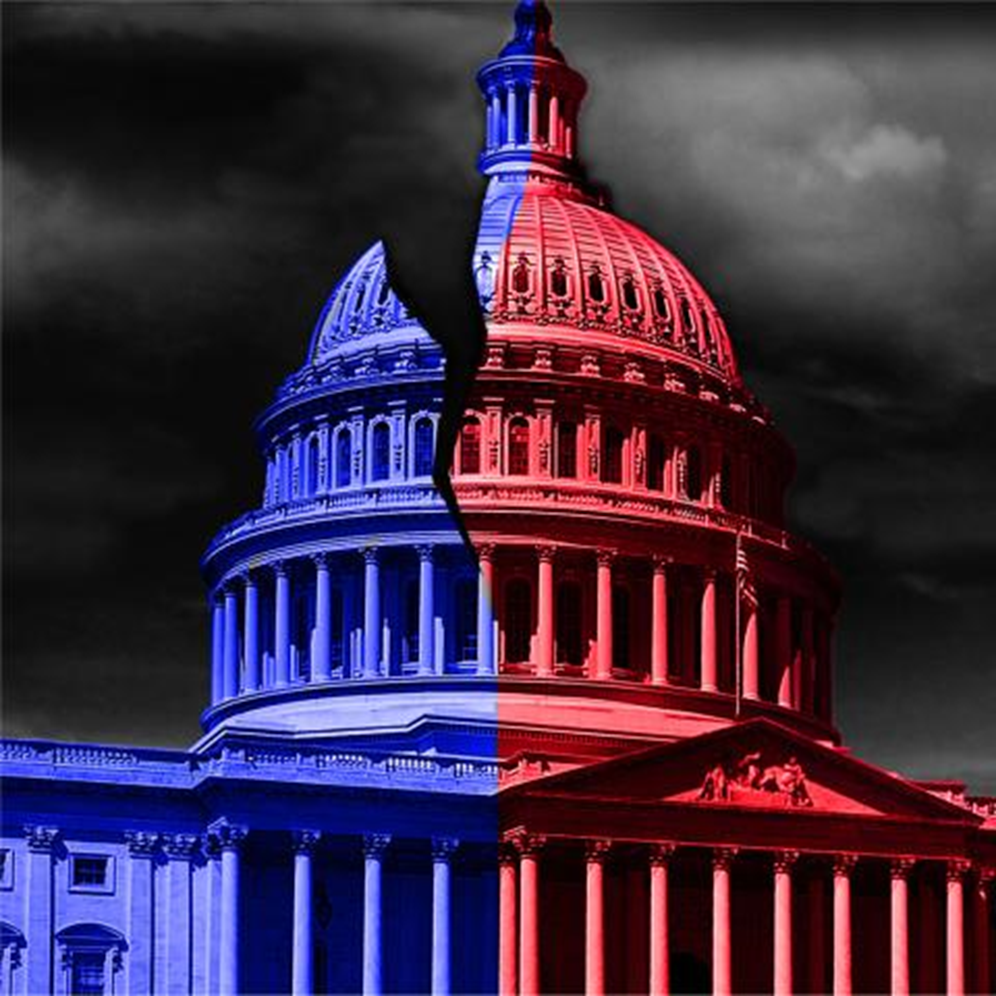
OBJECTIVE
In the days after the 2022 US midterm elections, Mercury Analytics launched a study to understand how US registered voters feel about the current state of politics in the US, how much they value unity and collaboration between opposing political parties, and their reactions to a proposed “Unity Pledge”, which would commit a political candidate to run on a platform of civility and greater bipartisanship.
This study focused on registered voters in the US, with demographic quotas set to ensure a nationally representative sample. A total of 1108 registered voters were recruited by professional sample providers between November 9th and 10th, 2022. As a result, the study exposes the views of the electorate just after voting in the midterm election.
Key Takeaways
Today, the US feels deeply divided. Republicans and Democrats don’t just disagree with each other politically, as in the past, but describe the other side in ways that suggest that the ‘other’ wants to destroy America.
Overall, 7 in 10 Republican, Democratic and Independent registered voters indicate that their view of the state of politics in America is best described by the statement: “The divisions that exist between Republicans and Democrats are bad for America. I want to see Republicans and Democrats working together again solving our problems.”
Respect and cooperation are key – 86% of registered voters overall believe it is “extremely” or “very” important for our elected officials to act respectfully toward one another and work cooperatively to solve the challenges facing our country.
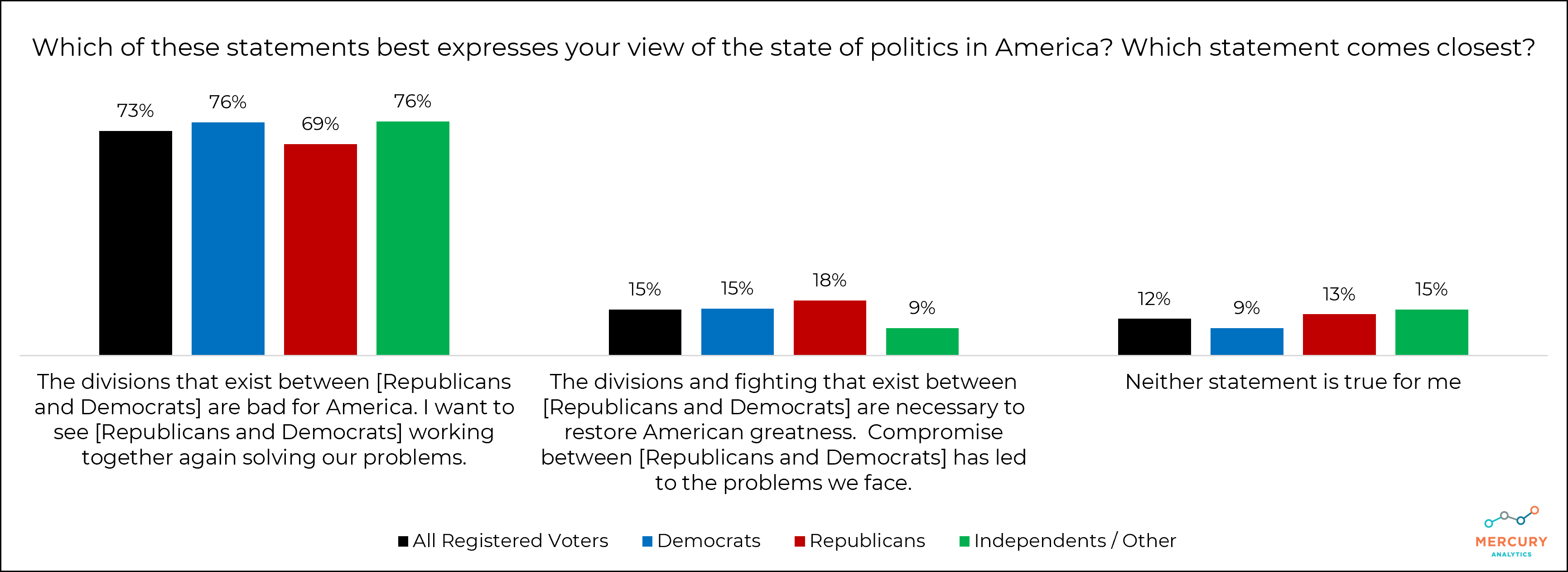
What has changed?
Why do we feel this way?
News Media + Congress
When asked to identify who or what is driving the anger and divisiveness between Republicans and Democrats, voters point to “networks and news channels” followed by “Members of the Congress” (70% and 60% rank #1 or #2, respectively) .
NBC, CNN, ABC, Fox + CBS
If networks and news channels are driving the anger and divisiveness, which ones are the most trusted? Registered voters indicated the most trust in local TV news stations, NBC, CNN, ABC, Fox News, and CBS the most, with Republicans favoring Fox News.
As for Congress…
Congress has a long ways to go to convince US voters that they are serving those who elected them – fewer than 4 in 10 registered voters think that the US Congress is functioning well in terms of delivering its mission – and only 1 in 10 think it is functioning “very well”.
Dismal self-perceptions – When asked to evaluate the actions of their own party’s Members of Congress, just 56% of Democrats indicate that Democratic Members “almost always” or “often” act respectfully and work cooperatively with Republican Members, compared to only 37% of Republicans who think their Members act respectfully and cooperate with Democrats.
Stalemate – Both Democrats and Republicans view the other party’s behavior toward their own negatively, with 3 in 5 indicating members of the opposing party respect and cooperate “not very often” or “rarely or never”.
Independents are split about their members’ behavior – 25% think they are respectful and cooperative more often than not, 40% think they act this way sometimes, and 36% think they do not act with respect and cooperation often.
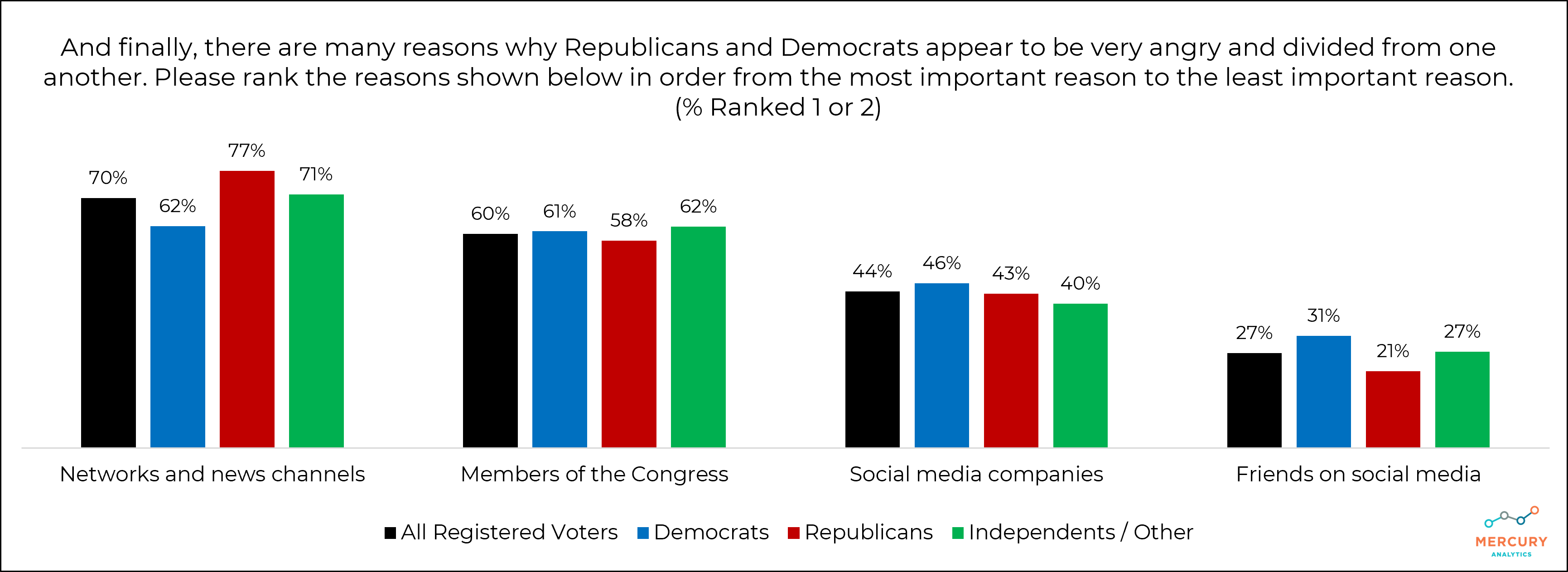
PLEDGE OF UNITY FOR CANDIDATES FOR CONGRESSIONAL OFFICE
- I will clearly communicate how I feel about an issue without insulting other legislators that I disagree with
- I will negotiate hard for those things I feel strongly about, but work with other legislators who feel differently to find compromises, even if the compromises include some issues that I do not agree with
- I endorse the statement that “I am an American 1ST. I am a [BASED ON PARTY “Republican / Democrat / Independent”] 2nd.”
UNITY PLEDGE: OVERWHELMING SUPPORT
Response to the Unity Pledge is overwhelmingly positive, with 9 in 10 registered voters overall indicating that they would be “much” or “somewhat” more likely to support a political candidate that signed and endorsed the Unity Pledge.
- Democrats would be most influenced by the Unity Pledge, with 53% indicating they would be “much more” likely to support a candidate that signed this pledge, compared to 43% of Republicans and 40% of Independents.
Slightly fewer than half of registered voters overall think “all or almost all” or “most” of their friends and family would support the Unity Pledge for Congressional candidates, with all three party segments indicating similar ratings.
Each party segment believes that their own party is most likely to support the Unity Pledge, with Republicans and Democrats also believing that the other is least likely to support a candidate who took the Unity Pledge.
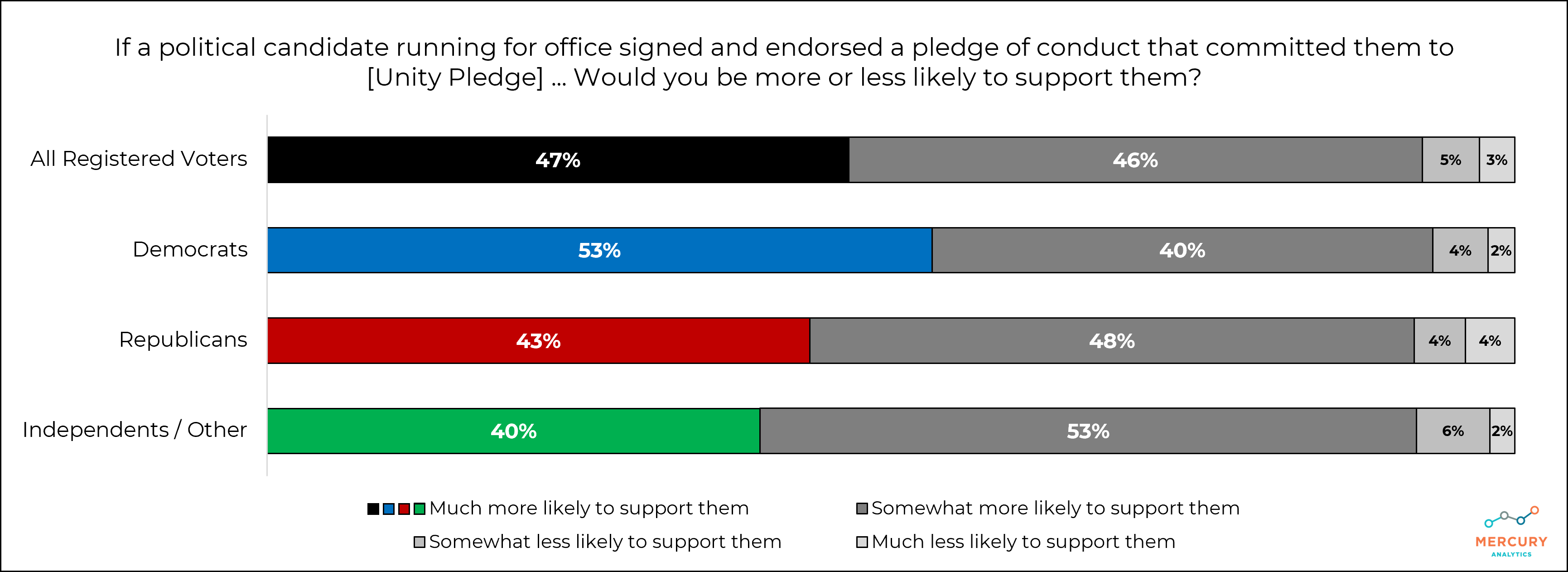
Backwards & Forwards: 2020 vs 2024
In the 2020 presidential election, 9 in 10 Democrats voted for Joe Biden and 9 in 10 Republicans voted for Donald Trump. Meanwhile, Independents were more split – 46% voted for Joe Biden, 36% voted for Donald Trump, 5% voted for someone else, and 14% did not vote at all.
Looking forward to the 2024 presidential election, neither Joe Biden nor Donald Trump are everyone’s favorite. Among Democrats, 39% prefer Biden to be the 2024 nominee while 61% would prefer someone else. Among Republicans, about half prefer Trump while the other half prefer someone else.
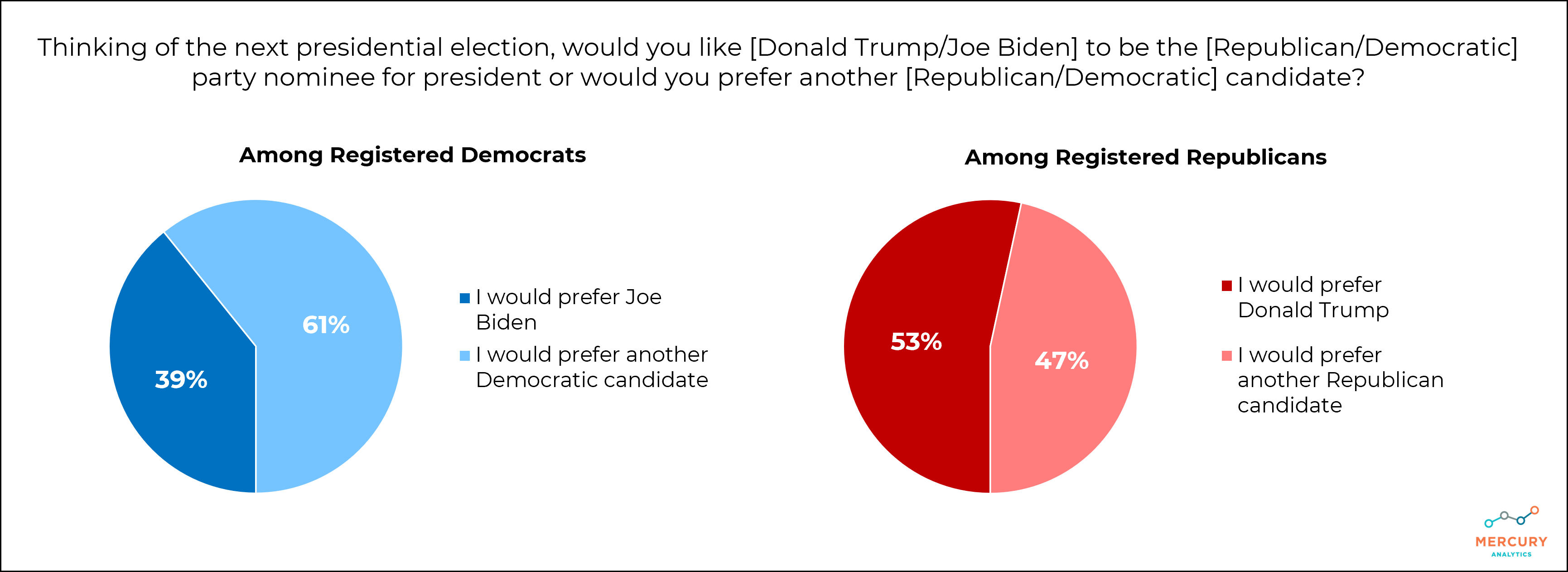
METHODOLOGY
Respondents first answered screener questions to determine eligibility and, once admitted, were asked about their past voting habits and current perceptions of politics in the US, including their thoughts on the upcoming Presidential election, the existing divisions between parties, and the performance of Congress and behavior of its members.
Respondents were then introduced to the idea of a “Unity Pledge” that would commit a political candidate to clear communication, collaboration, and a willingness to compromise with their counterparts across the aisle.
Finally, respondents were asked a final set of demographic questions before the conclusion of the survey.
Quotas were set on gender, age, ethnicity, political party, and region, and final data was weighted to ensure a nationally representative sample.
Margin of error, calculated at a 95% confidence level, is +/- 2.94% for this study.
let's connect today.
better technology. better insights. better decisions.

1120 20TH ST NW. SUITE 350
WASHINGTON, DC 20036
202.386.6322 EXT 2
Reach out
© 2025 Mercury Analytics, All Rights Reserved | Privacy Policy
